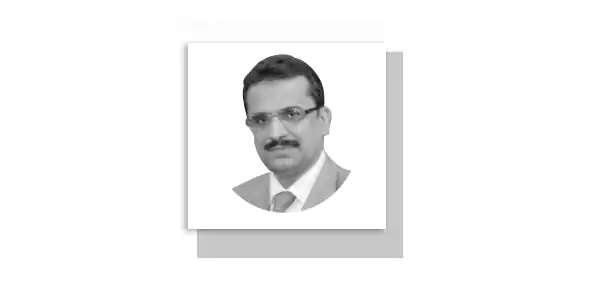THE 2nd Ministerial Meeting of the OIC-15 Dialogue Platform, held in Tehran on 18–20 May 2025, marked a significant step forward in fostering cooperation in Artificial Intelligence (AI) among the member states of the Organization of Islamic Cooperation (OIC).
Under the theme “Trustworthy and Ethical Artificial Intelligence for Sustainable Development,” the summit brought together ministers and senior officials from leading OIC countries to reaffirm AI as a vital tool for collective progress.
Launched in 2022, the OIC-15 Dialogue Platform, spearheaded by COMSTECH, aims to deepen scientific collaboration among 15 technologically advanced OIC member states.
It focuses on strategic dialogue and coordinated initiatives in emerging technologies, with artificial intelligence identified early on as a key priority area.
The platform’s first meeting in Kazakhstan laid the groundwork, while this second summit in Iran has solidified AI’s role as a central pillar for future cooperation.
Artificial intelligence is revolutionizing sectors critical to development, including healthcare, education, agriculture and governance.
For the 57 OIC countries, many are grappling with challenges like climate change, food insecurity and access to technology, ethical and inclusive AI offers an unparalleled opportunity to leapfrog developmental gaps and secure a stake in the global digital economy.
For countries still building digital infrastructure, collaboration is essential.
AI can catalyze a shift toward knowledge-driven economies, boost productivity and prepare workforces for future industries.
With global influence increasingly shaped by technological capacity, OIC States must act collectively and urgently to ensure their relevance in the AI era.
Recognizing this, the OIC Secretariat has tasked COMSTECH, the Ministerial Standing Committee on Scientific and Technological Cooperation, with formulating a comprehensive AI policy for all member states.
Under the leadership of Prof.Dr. Muhammad Iqbal Choudhary, COMSTECH is now driving a unified approach to AI adoption across the Muslim world.
The Tehran Declaration, signed unanimously by nations including Pakistan, Iran, Turkiye, Saudi Arabia, Indonesia, Malaysia and others, outlines a strategic roadmap focused on five key areas: education, research, infrastructure, ethics and global competitiveness.
Among the declaration’s most impactful commitments is the promotion of AI literacy across all levels of education.
This includes launching degree programs, vocational training and online learning, particularly for women and underserved groups.
Member states also pledged to undertake joint research in sectors such as healthcare, smart agriculture and climate resilience.
Plans are in motion to set up regional research hubs, establish funding mechanisms and create platforms for collaborative innovation.
To bridge the technological divide, the declaration emphasizes knowledge-sharing through open-access platforms and structured exchanges.
It encourages the creation of shared high-performance computing infrastructure and cloud services.
Programs to support fellowships, internships and cross-border professional exchanges are also being designed to boost talent mobility within the OIC community.
Governance is another focal point.
Participating countries agreed on the need for transparency, fairness, inclusivity and respect for data privacy in AI systems.
National AI strategies will be aligned with international ethical frameworks to ensure responsible and equitable deployment.
The declaration also stresses the importance of involving the private sector, nurturing AI start-ups and attracting investment to strengthen innovation ecosystems.
COMSTECH’s central role is vital to advancing this vision.
In his address at the summit, Prof.Dr.Choudhary highlighted AI’s transformative potential in driving socio-economic development and scientific progress.
He reaffirmed COMSTECH’s commitment to providing strategic guidance and facilitating cross-border collaboration, ensuring that AI is adopted in a way that reflects shared values and development goals.
With the Tehran Declaration, the OIC-15 Dialogue Platform is poised to lead in shaping an ethical and inclusive AI future for the Muslim world.
The political will demonstrated at the summit, combined with practical strategies for implementation, signals a readiness to embrace AI not only as an engine for economic growth but also as a tool for social equity and global competitiveness.
Despite challenges such as resource disparities and the rapid pace of technological change, the collective efforts of OIC-15 countries offer a promising path forward.
By fostering unity, sharing expertise and investing in human capital, the Muslim world can position itself as a significant force in the global AI ecosystem.
As AI continues to reshape the world, the OIC-15 nations stand united to ensure that this powerful technology advances sustainable development and respects ethical standards.
—The writer is a National Coordinator Inter University Consortium. (iucpss_pk@yahoo.com)


















